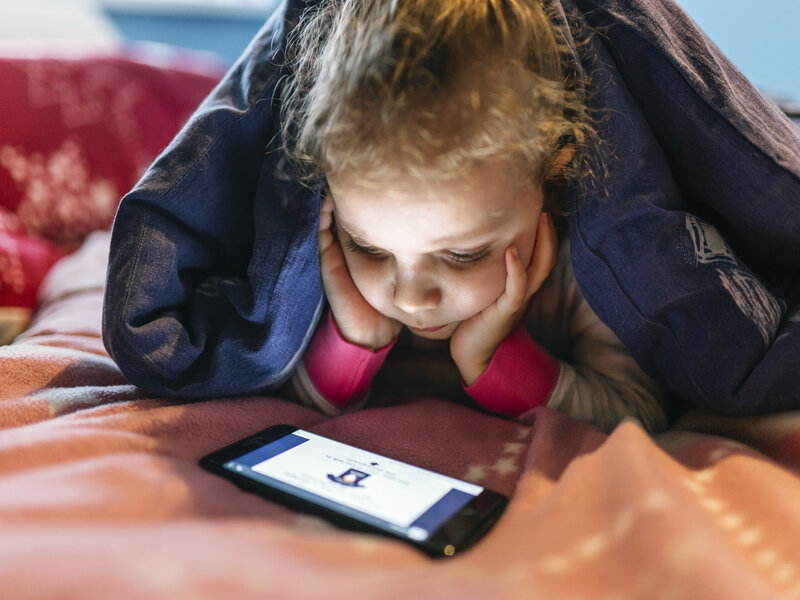Memory in the Internet Age: A Study Reveals How it’s Changed
Raise your hand if you know the cell phone number of your own parent or
child by heart? Who knows the birthdays of their friends, relatives or
closest colleagues, without having to check Facebook or some other
electronic database? In the vast majority of cases, the response is
negative. Nevertheless, our grandparents remembered them all. Dates of
anniversaries or birthdays didn’t slip their minds, let alone dates of
great historical events. I recall my grandmother, at 90 years old, could
still flawlessly recite the beautiful poetry she learned at school as a
child, without any hesitation.
What happened? The Kaspersky Lab has studied the capacity of our memory in the age of the
Internet and the digital revolution. The final conclusions of the study are
inexorable: we no longer make the effort to memorize anything. At the
slightest doubt, uncertainty, or lack of information, we immediately
consult the Internet, as if it was the oracle of Delphi. Tabletop
discussions are now short-lived. Every debate finishes quickly with the
fateful response, “let’s see what Wikipedia says.” The Web offers us a
response for every type of question, rendering any minimal effort to
remember or reason pointless.
Memory in the Internet Age: digital amnesia and the Google effect
Studies carried out by the Kaspersky Lab bring two increasingly widespread
phenomena to light:
– Digital amnesia: trusting exclusively in one’s own
devices (smartphone, tablet, computer, etc.) to keep track of useful data decreases our capacity to remember important personal data
, such as birthdays and daily appointments. A practical example of digital
amnesia is seen in the chronic incapacity to learn new telephone numbers,
while it is easier to remember old house numbers, which we memorized before
the digital era.
– Google effect: a type of progressive weakening of our general memory (such as the
difficulty to remember dates of historical events, names or ideas)
resulting from the habit of searching Google for an answer to every
question, instead of making the effort to remember or reason.
Methodology and Results from The Kaspersky Lab
Studies were conducted in the United States and Europe simultaneously. In
the US, the sample group consisted of a thousand people between the ages of
16 and 55, with an equal spread of men and women. Europe’s sample had the
same criteria but a wider spread of 6,000 people from Great Britain,
France, Germany, Italy, Spain, and Benelux.
The primary data collected revealed that:
– More than 90% of subjects from the US and almost 80% of European subjects
admit to using the Internet as an extension of their memory to remember
dates or find responses to whatever they need.
– One out of three Europeans, and one out of two Americans, affirm to
immediately consult the Web when they need an answer to a question, without
making the minimal effort to remember or reason. Furthermore, one out of
four Europeans and one out of three Americans state they immediately forget
information they had just obtained online.
– In general, the possibility to lose data recorded on own’s own device,
particularly in the smartphone, is a source of great stress and worry,
especially among women and those under 35.
– Digital amnesia effects not only the youngest users, the so called
“digital natives”, but also older adults.
A very interesting point emerges from these results. It seems as if our
brain has learned well how to turn on certain information, which results,
however, in immediately forgetting that same piece of information. This
also goes for images. The possibility to snap a photo in every moment,
thanks to the modern smartphone, carries with it a gradual decrease in our
capacity to visually memorize lived experiences, forcing us to use the
photos we take to remember the details. The same thing happens to the
person who is used to driving with digital navigating assistance. It
completely erases the visual imagination, as well the capacity to reason,
to the point of even forgetting the way to one’s own home, inhibiting any
sort of self-orientation while driving.
The interviewees nevertheless realize the negative effects of their
smartphones. Many were quite sad at realizing that they have to trust in
technology to conserve their own memories or find solutions to their
smallest daily problems.
Digital Amnesia and The Google Effect: Some Conclusions
We store less data and we train our brains less, which are slowly becoming
increasingly lazy and drowsy, like a log at the start of autumn.
The comfort of technology is practically spoiling our memory as it offers
us the dangerous luxury of not having to memorize information and ideas. No
one is free from this danger, given that the use of the Internet and
smartphones is already universally widespread to every age and social
stratum.
Is a Remedy Possible?
We don’t want to make frivolous and useless warnings. However it is good to
begin flagging the issue now, at least to make others conscience of the
problem.
It is certainly difficult and perhaps drastic to suddenly drop the
practicality of a smartphone, tablet, or the Web. But there’s needs to be a
balance. So the next time we are looking for a street, perhaps it would be
a good idea to take out the old yellowed map and stretch our brains,
instead of turning on Google Maps.
And you, dear readers, what relationship do you have with technology? Do
you remember people’s birthdays? Tell us your opinion in the comment
section for this article. We look forward to reading it!














